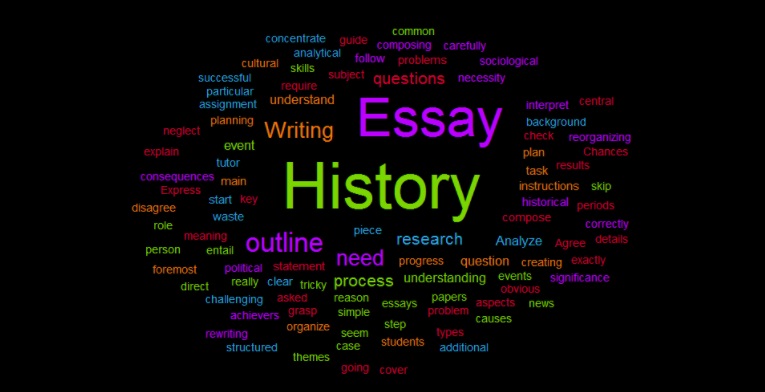How To Develop a History Thesis
Narrowing the Topic Ensures a Successful Paper and Develops Focus
The best history papers begin with a tightly focused thesis which is then proven in the body of the paper through thorough research. The ability to narrow a topic or thesis is perhaps the most difficult part of writing a paper.
Procrastinating students will have a near-impossible task of doing this. The most successful paper writer, as well as a free essay writer, will select a focus area to research, phrase their thesis as a question or historical problem, read enough about the topic to develop sub-questions, and then formulate a very specific yet workable thesis.

From the Broad to the Narrow
It is very tempting to write a history paper on 'The Hundred Years' War,' yet entire books are devoted to this theme. Students interested in this topic should begin by reading general histories of the event so that they can develop very specific aspects that they wish to research in-depth:
- 1. Does William Shakespeare's 'Band of Brothers' speech in Henry V accurately reflect leadership at Agincourt?
- 2. To what extent did Joan of Arc's success impact French morale?
- 3. Was Edward III's claim to the French throne the catalyst that led to war in 1337?
Each of these questions represents a very narrow topic worthy of research that can be transferred to a working thesis:
- 1. Henry V's leadership at Agincourt, though glorified by Shakespeare, can best be attributed to poor French planning.
- 2. Seen as a messenger of God, Joan of Arc galvanized French popular support, thus enabling her to be successful.
- 3. Edward III's legitimate claim to the French throne was viewed as anathema by French nobility and ultimately led to the outbreak of war.
Researching the Topic
Most students tend to avoid very narrow topics because accompanying research may be ponderous. Part of the problem lies in the fact that many students prefer or are used to writing papers at the last minute rather than 'going to the stacks' and reading as much about their topic as they can.
Good research papers can rarely be written from internet sources alone. Internet research is a process of rapid scanning, clicking from one URL to another. Students that use this approach as their sole research method do not receive a well-rounded understanding of the topic nor can they differentiate the authority or reputation of the source. Book reading and research must be an integral part of any endeavor to craft a successful paper.
Refining the Focus
By the time the student is ready to write the first draft, the focus of the thesis may have changed. Good background reading and researching specific aspects of the topic will, invariably, help to refine the focus or even take it in an entirely new direction.
A student researching the security of Washington, DC in February-March 1861 may shift the focus to: 'Winfield Scott's initial decisions to protect the nation's capital reflected a desperate attempt to create a force able to protect the government and the president-elect from possible Confederate actions.' There is more than enough research material to pursue this very narrow topic.
A Brief Outline That Ensures Success (And an 'A')
- Begin on the paper the day it is assigned!
- Select several general topics to pursue.
- Narrow the focus to one or two topics.
- Read, read, and read.
- Develop a general thesis and continue to narrow it as your research.
Writing a good research paper can be challenging but it can also be fun. Hard work will pay off and you will succeed in impressing the instructor. It all begins with a focused thesis that leads, through good research, to a sound conclusion.